
DHSA Grant Reports
Whether it’s a career change into the world of Cordon Bleu food, completing a medical elective in the Philippines or making a move into teaching with a PGCE certificate, our Old Seniors have used their DHSA Grants to change their lives. Find out about just some of our Old Seniors who have used their grants to re-write their own stories.
Apply now
If you are inspired reading these grant success stories and meet the application criteria, you can apply for your own DHSA grant right now!
APPLY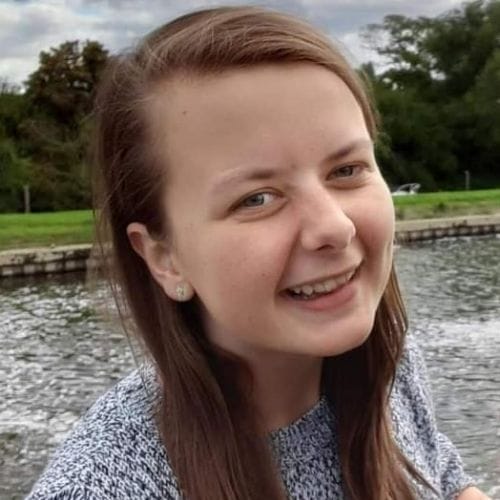
Naomi
Grant recipient Naomi (2015) writes about her time studying at University of Winchester and after graduation working in primary education. After reflecting on her career, in 2022 Naomi applied for a Grant to help with her studies for the National Award for Special Educational Needs Co-ordination at the University of Winchester.
Read MoreNaomi

I left Downe House to pursue Primary Education at the University of Winchester with a particular interest in working with children with Special Educational Needs. This passion started in Sixth Form with the opportunity for volunteering, I volunteered at a local SEN secondary school for one morning a week, helping in class with day-to-day activities and even helping them to produce their Christmas show. The fact that I remember this so clearly from 2014 shows how much I valued that experience!
At university I had three placements, one of which was in a SEN school in Basingstoke. With these experiences, lectures, and seminars it confirmed my passion for supporting vulnerable children and children with SEN. After graduation, I worked in a local primary school for four years working in Key stage 2, years 3-6. During this time, I continued to develop my skills by becoming Head of Design and becoming Head of Pupil Premium funding. This funding is for disadvantaged pupils to help improve their educational outcomes within state schools. Being responsible for this funding, making decisions as to where the funding should be allocated within the school and having to justify my decisions to the governors showed me how much being a teacher can make a difference.
In 2022, I reflected on my career and thought about what I wanted to do next. I had dedicated a considerable amount of my time talking to my current Special Educational Needs Co-ordinator (SENCO) about her role and what I could do to gain more experience. It was with these conversations that led me to explore the National Award for SENCO qualification at the University of Winchester. I applied in April 2022 and was accepted onto the course a few months later, ready to start in the new academic year. It was at this point that I contacted the DHSA for support with the funding for this course.
The course consisted of hybrid learning with lectures online, seminars in person and independent study throughout the year. There were three assignments across the year based on my own personal experience in my current educational setting. The lectures and seminars gave me the opportunity to network and meet with other professionals who support children with SEN such as social workers, council representatives and local politicians. It also led to me delving deeper into my own knowledge and what I could do to support children with SEND.
As I gained the SENCO qualification at the end of my course, in which I gained a merit for my efforts, it prompted me to begin to look for new jobs as a SENCO. As of September 2023, I am a Deputy SENCO at a local secondary school within the Bournemouth area where I am currently living with my fiancé. This role is only for teachers with the SENCO qualification. My role entails supporting all children in this school who have SEN (currently 25% of the school), leading a team of teaching assistants who support these children in class, as well as a bit of teaching on the side. The change to teaching in a secondary school was definitely not expected but I can honestly say that this has been the best move in my career yet.
All of this could not have happened without the DHSA grant which I am eternally grateful for. If you are considering changing a career or looking to gain more qualifications, I would definitely recommend it, especially as it opens up more doors than you think.
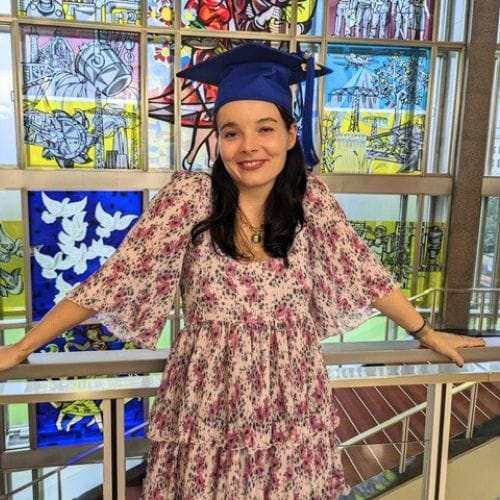
Ellie
Grant recipient Ellie (2013) writes about her experiences whilst undertaking a Masters in Business Administration at the European School of Management and Technology (ESMT) in Berlin.
Read MoreEllie

After leaving Downe House in 2013, I completed a one-year apprenticeship in Music Business with a record label called ‘Mute Records’. From there, I continued working, eventually moving to another record label called ‘Partisan Records’ in 2017, where I have remained for the last six years working as a product manager. As a result, I never found the right moment to do an undergraduate degree. As I continued to develop through my career however, I found myself needing certain business skills and grew interested in exploring executive education degrees, which is what led me to applying for an MBA.
The only school I applied to was ESMT, a business school based in Berlin and founded by 25 global companies including McKinsey, KPMG, The Boston Consulting Group, Siemens, and T-Mobile. The programme I was accepted onto was the Part-Time Master of Business Administration Course which was delivered in a blended format: 75% online and 25% in-person, thus allowing me to work full-time and study simultaneously. The duration of the programme was two years and comprised 14 modules, each lasting approximately 8 weeks and each containing three courses.
Whilst eager to dive in when I started the course in September 2021, I quickly learned that working full-time and juggling a course that demanded an additional 20 hours of my life each week was no easy feat. I also felt like I was certainly thrown in the deep end with some of the early courses too: Microeconomics, Data Science, Finance Management, Business Ethics and Accounting to name a few. We covered all sorts, everything from data regression models to capital asset pricing, from discounted cash flow systems to organisational change theories, from entrepreneurial strategies to queuing theory, why Benihana and Disneyland are such successful business models, and how Netflix eventually conquered Blockbuster in the classic battle between disruptor and incumbent.
I also learned that I have absolutely no desire to ever become an accountant! As I progressed through the masters, I soon found my balance. A highlight of mine was during our ‘Entrepreneurship’ course and being given the opportunity to create a product and pitch it to a board of investors. I was part of a small team, and we went through the entire start-up process: idea generation, forming an entrepreneurial business model, articulating, and testing assumptions, marketing, financing, and eventually pitching for fundraising to turn the idea into reality. One of my other favourite courses was operations management. While challenging, we learned about strategies to better optimise processes, including ways to predict future supply needs based on historical demand. This is a skill which I now use all the time in my everyday job, predicting the quantities of vinyl and CD stock for future releases based on historical sales data, and balancing this with the label’s incoming and outgoing cash flows.
We also learned how to build prediction tools, such as Excel’s ‘SOLVER’, which has since allowed me to better forecast budgets and more effectively predict the effect on projected profit amounts. One year into the two-year course, I was offered a place on an exchange programme at Yale University. The course was ‘Behavioural Science of Management’ and was taught out of Yale’s School of Management (fondly known as SOM). I flew to New York in March 2023 and travelled up to New Haven CT, where I spent a week in various lectures and seminars.
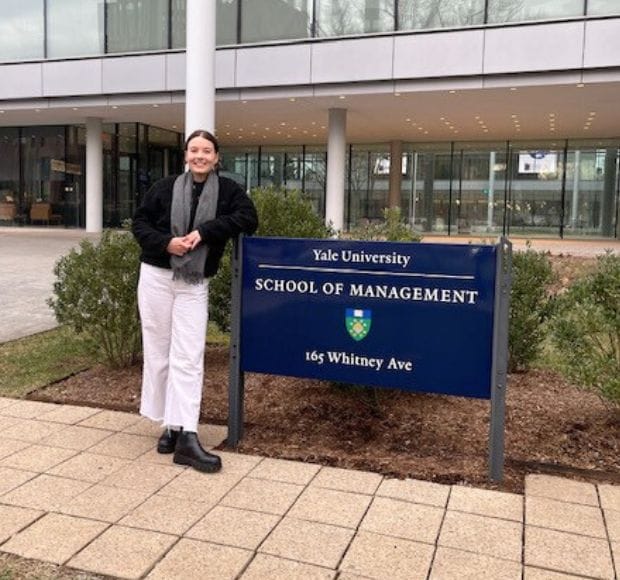
It was an incredible experience to be walking the same corridors as Nobel Prize winning professors such as Robert J. Shiller, who was awarded a Nobel Prize in Economic Science in 2013 for his research at the School of Management that has improved the forecasting of asset prices and helped the emergence of index funds in stock markets. Some of the lectures I attended throughout my week at Yale included ‘Understanding Consumer Experiences’, ‘Making Better Decisions Using Behavioural Science’, ‘The Profound Power of Culture’, ‘Negotiation Mindsets’ and ‘Behavioural Finance’. I also had the pleasure of meeting and spending time with other MBA students from Yale, some of whom took me to the famous post-grad bar ‘The Gryphon’ and to the iconic ‘Louis’ Lunch’: a tiny rustic lunch spot dating back to 1895, with claims of having invented the first hamburger which it still serves on toast.
The remainder of my MBA at ESMT was spent working on my thesis, which, for the part-time course, is designed to solve a real-life business problem that exists in your organisation. In my case, this was an in-depth analysis of Partisan Records’ global digital distribution solution, exploring ways to better optimise the way the company distributes music to digital streaming platforms around the world, such as Spotify, Apple Music, Amazon, and YouTube Music. The idea of trying to solve a real-life business problem was daunting at first, but I am so grateful for all the support of everyone at my company as I ventured through it, not to mention their patience while I pestered them with endless questions and requests for data.
After a wonderful week away in Athens with 30 of my classmates to celebrate the end of the course in August, I officially graduated at the start of October 2023. I was over the moon to graduate with a first-class master’s degree, coming 12th in class overall from my cohort of 50 classmates. Doing this MBA has been one of the most challenging yet rewarding experiences of my entire life, and I owe a huge debt of gratitude to the Downe House Seniors Association for their extremely generous contribution towards the fees of my degree.
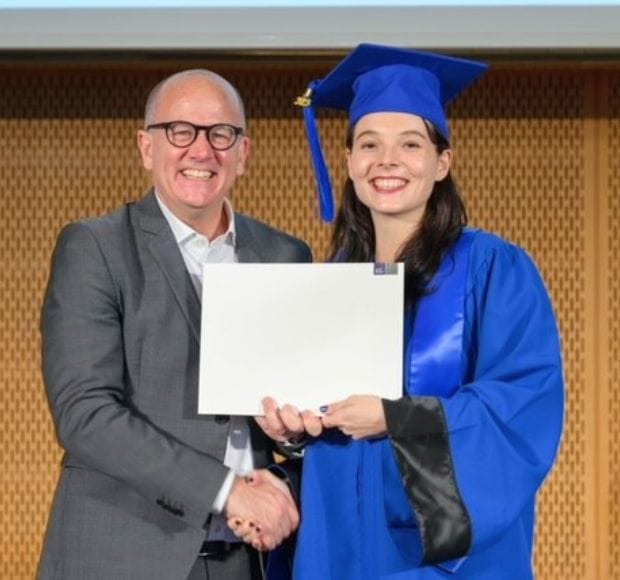
None of this would have been possible without their help, and I really am forever grateful for that. As I write this, I am still living and working in Berlin full-time, and I am transitioning into a ‘Director of International’ role at Partisan Records in January 2024. This role will essentially involve overseeing the marketing, operations, and business development of the label in Europe, Asia, South America and Australia and New Zealand.
I am beyond excited for what the future holds, and I’d like to say a final thank you to the DHSA and everyone who has supported me in getting to this point. Here’s to future, fearless enjoyment.
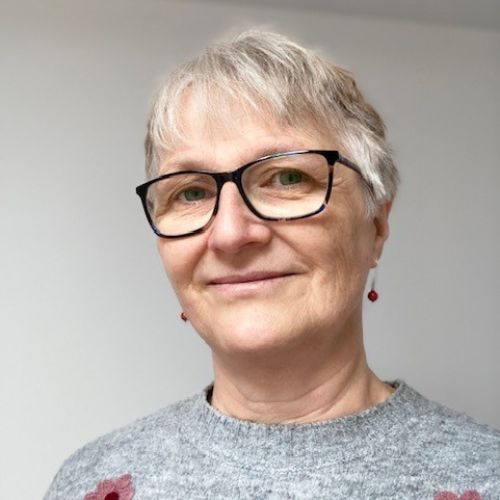
Marigold
Grant recipient Marigold (Lewis, 1979), has been awarded an MA with Merit in Fine Art from the University of Northampton, using the DHSA Award to fund the materials for her final module.
Read MoreMarigold

My most recent work has been a working out of my memories, shrouded in the mists of time, that stem from the womb. I am a bereaved-at-birth twin. This state of being has driven a life-long interest in the nebulous; those thoughts and feelings that are so hard to pin down and explain to others. John Donne wrote, “No man is an island, Entire of itself.” We are relational beings and the idea of relationship manifests in my work.
Most recently I have been working with sheer fabrics to speak of the difficulty in grasping an idea or thought or memory or feeling that is just out of reach. The Ties that Bind: Life before Birth: a Homage to Robert. (2023) was the culmination of two years of study and experimentation into how to visualise my memories of the time my twin brother and I spent together.
I have just been awarded an MA with merit in Fine Art from the University of Northampton. The grant from the Seniors Association has enabled me to buy a relief press, and other printing materials that will continue to be a valuable resource in my practice. These will allow me to investigate process and materials further. I am very interested in where paint and print overlap. The grant also financed the purchase of fabric for the textile installation I made for the final module.

The installations I make are all about relationships. Mostly about the loss of a relationship; the expression of deeply felt hurt. Whilst doing the course I was awarded a commission with English Heritage to create an installation in Rushton Triangular Lodge. It is a fascinating building. Designed by Sir Thomas Tresham whilst in prison for his faith, the exterior is rich with symbolism. The exhibition will be open to the public in the summer of 2024.
As well as working in textiles, I use paint, print, sound, video and collage. I have been fortunate to be able to study Fine Art at the University of Northampton for both the BA and the MA. I found having the space to explore different media enriching and exciting. I was at Downe from 1974 to 1979. Some of my happiest times were spent in the art room. The teaching I received has been a good foundation for my subsequent work. I am grateful to the DHSA for the grant.
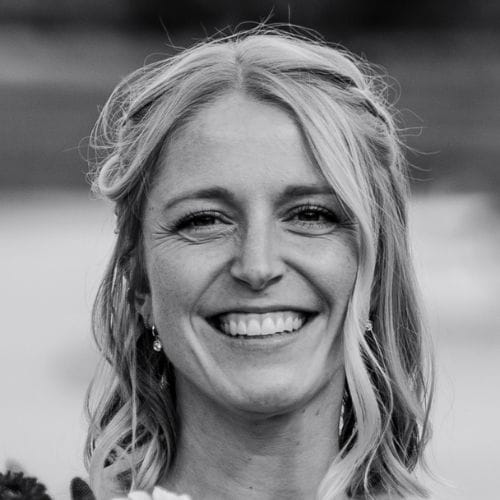
Jo
Award recipient Jo (2010) has transitioned from being a family lawyer, to being a family mediator, with a DHSA grant supporting her retraining.
Read MoreJo

When my partner was offered a job which raised the prospect of leaving the UK for an adventure in Vermont, it felt like a rare and special opportunity and one worth taking.
The opportunity to uproot arrived as I was a Solicitor in the family department at law firm Mishcon de Reya in London. I loved my job as a family lawyer. I felt I had cheated the system, qualifying as a lawyer but working in a fascinating and meaningful area of law based on fairness, equality and the welfare of children. Building relationships with clients and guiding them through some of the most difficult moments in their life never felt like work. However, I was becoming increasingly disillusioned with the family court system as a method of resolving family disputes, particularly where children were involved. I saw couples lose huge amounts of money, and any prospect of positively co-parenting their children, as they navigated a court system rife with backlogs and (occasionally) uncollaborative lawyers who further ostracised separating couples.
Moving country meant changing jobs, and changing jobs meant reassessing what I did for work.
I wanted to use the legal knowledge I had built, as well as my communication skills, to help families work towards better, more collaborative, and longer-term solutions. I believe that the people best equipped to make decisions about their own family, their own finances, their own children, are the couple themselves (separating or not). Making court applications in relation to finances or children means handing over this decision-making power to someone completely unknown to the family – a Judge. Mediation, on the other hand, is a voluntary process which is confidential and leaves the decision-making power in the hands of the couple. I have seen first-hand how skilled mediators can work magic in high conflict family dynamics. A good mediator creates a safe space for difficult conversations and facilitates discussions with a view to participants better understanding each other and reaching resolutions that suit them and their families.
And so I decided to transition from being a family lawyer, to family mediator.
I am hugely grateful to the DHSA who provided a grant to fund my retraining. I completed two Vermont-based mediation courses, and a UK family mediation course approved by the Family Mediation Council (the regulatory body for family mediators in the UK). These courses built on my family law skills and involved a significant amount of learning in child brain development, substance use disorders, family system dynamics, managing conflict, communication styles and co-parenting skills. I believe I have learnt more, both personally and professionally, through these courses than I did from my previous five years working as a family lawyer in London. I have now set up my family mediation business, Jo Henley Mediation (henleymediation@gmail.com, 0203 026 9832) and provide family mediation services to UK clients (remotely) and US clients. The work is everything I hoped it would be. It is moving, gratifying, and effective in reducing family conflict and the emotional and financial costs of separation/divorce.
So far Burlington, Vermont has also not disappointed – a half-hour drive to the nearest ski slopes, fiery-Fall foliage, positioned on an enormous lake bordering Quebec and the Adirondacks, and next to a mountain range littered with hiking trails and Summer swim holes. Thank you again to the DHSA who made my career pivot, and therefore my relocation, possible.
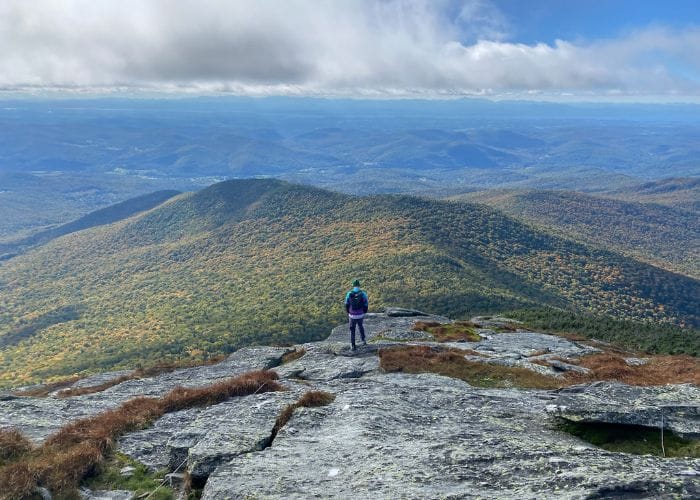

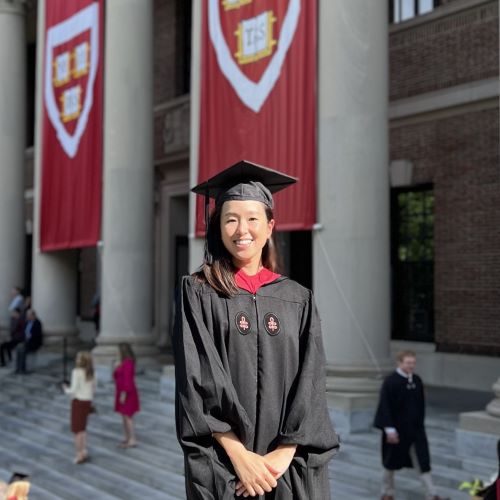
Jen
Grant recipient Jen (2004), five years after graduating medical school, took a break from clinical work to undertake a Masters in Public Health at Harvard University.
Read MoreJen

Jen writes:
Five years after graduating from medical school, I chose to pursue specialist training in Infectious Diseases and Microbiology with impeccable (or unfortunate, depending on how you look at it) timing at the beginning of 2020. 18 months and relentless waves of Covid-19 patients later, I was ready to take a break from clinical work and applied for a Masters in Public Health at Harvard University. The pandemic had truly forced me to consider our healthcare system as a whole, instead of the blinkered view I’d had of the individuals in front of me or the hospitals that employed me. As hospitals and ICUs reached capacity and staffing levels were stretched increasingly thin, uncertainties regarding the NHS’ sustainability had never felt more palpable. I wanted to acquire skills which would enable me to analyse pertinent organisational problems as the first step towards developing strategies and inventive solutions.
On a greater level, the Covid-19 pandemic had highlighted the pervasive health inequities that exist both within the UK and globally. High income countries consistently reported higher rates of morbidity and mortality amongst minority ethnic groups, and hoarded vaccines as the rest of the world watched on. I felt compelled to delve deeper into the social determinants of health, and to start having conversations which challenged my own perceptions and beliefs. I looked forward to returning to education for the people, the diverse encounters, and the intermingling of minds.
As such, I ended up with an extremely varied selection of courses, including but not limited to Biostatics and Epidemiology, Financial Management and Analysis, Bioethics in Global Health, and Design Thinking. I also took the opportunity to cross-register in classes at Harvard Business School and MIT and co-founded a start-up developing sustainable ways to repurpose single-use face masks. My degree culminated in a final project working with the International Association of Providers of AIDS Care (IAPAC) to research and contribute to the “Building Health Systems Resiliency” section of the IAPAC-Lancet HIV Commission on the Future of Urban HIV Responses. The commission seeks to examine and analyse barriers to accessing care, summarise best practices whilst reflecting global diversity, and anticipate future challenges in HIV prevention, care, and treatment. Committee meetings provided an amazing opportunity to learn from and exchange ideas with inspirational leaders in the field of HIV, and hopefully this synergy will be evident when the final report is published at the end of 2022.
Moving halfway across the world to start a new school year was arguably more challenging at the age of 30 than 13, but I am immensely grateful to DHSA for facilitating this incredibly enriching experience. Degrees from leading institutions are almost exclusively markers of one’s access, and since returning to London I have been able to reflect further on my immense privilege. Lawrence Bacow, Harvard’s president, reminded us during the Commencement ceremony to “save a seat and make room for others to ensure that the opportunities afforded by our education do not enrich our lives alone”. As I progress through the next few years of specialty training, and indeed the rest of my career, I look forward to seeking out ways in which my newly acquired knowledge and skills can have a positive impact on those less fortunate.
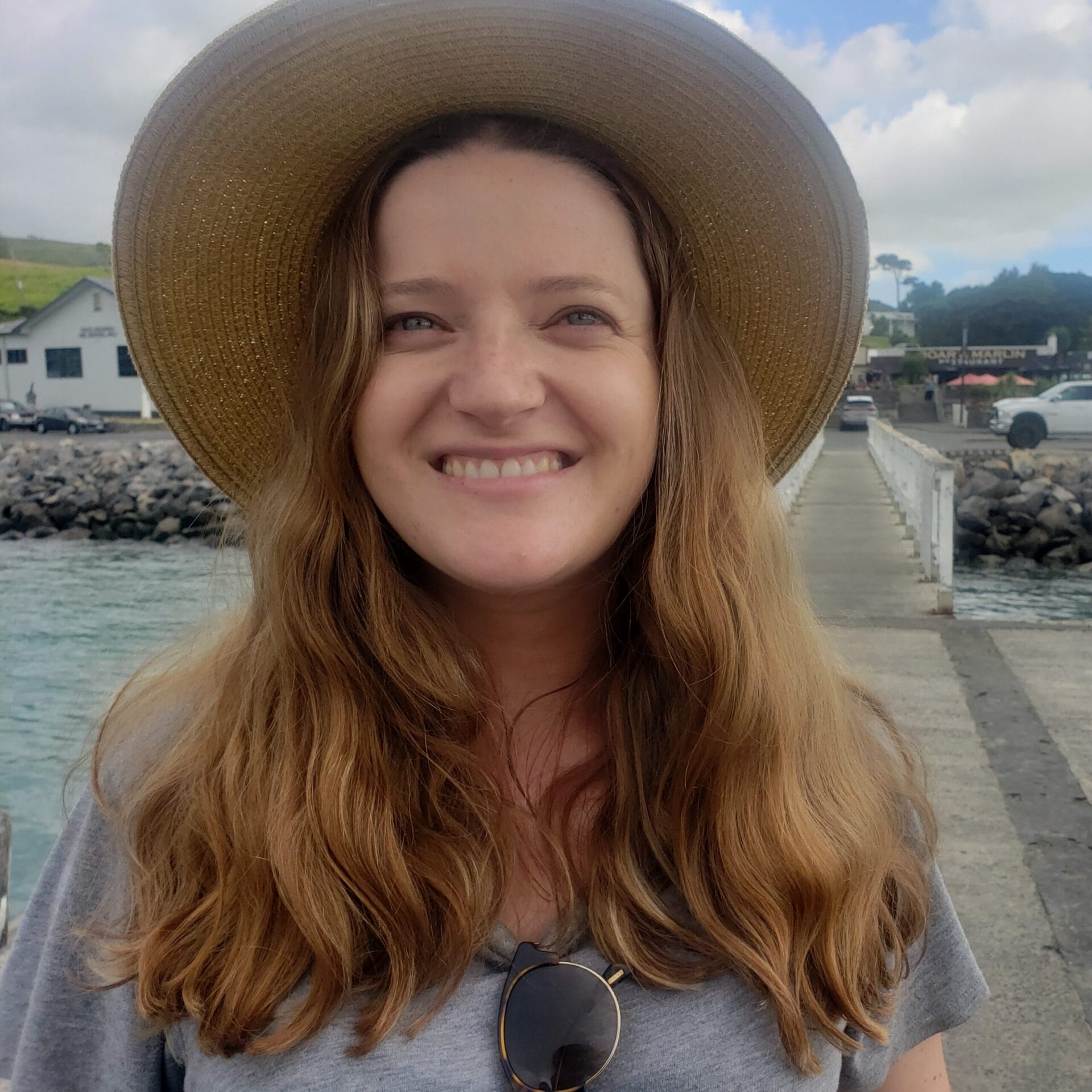
Carrie
Grant recipient Carrie (2002) moved to New Zealand after three years of teaching in Hong Kong, and applied to The University of Auckland as a mature student for further teacher qualifications.
Read MoreCarrie

When the first covid lockdown hit in 2020, I had just moved to New Zealand with my partner. I was at a bit of a crossroads, career-wise, as I had spent the previous three years teaching in Hong Kong, but did not have the correct qualifications to teach here in New Zealand. After a lot of soul-searching I realised the option that made sense for me, would be to apply to a university over here in order to qualify as a primary school teacher.
I now know that the process of applying as an international student is not entirely straight-forward, but the support to the DHSA really helped smooth things along, and set me up for the life as a mature student.
The course at the University of Auckland was fantastic, and the year flew by. Despite some lockdown-related hiccups, my cohort made it through! I have now spent four happy months teaching a combined years five and six class at a wonderful school in central Auckland.
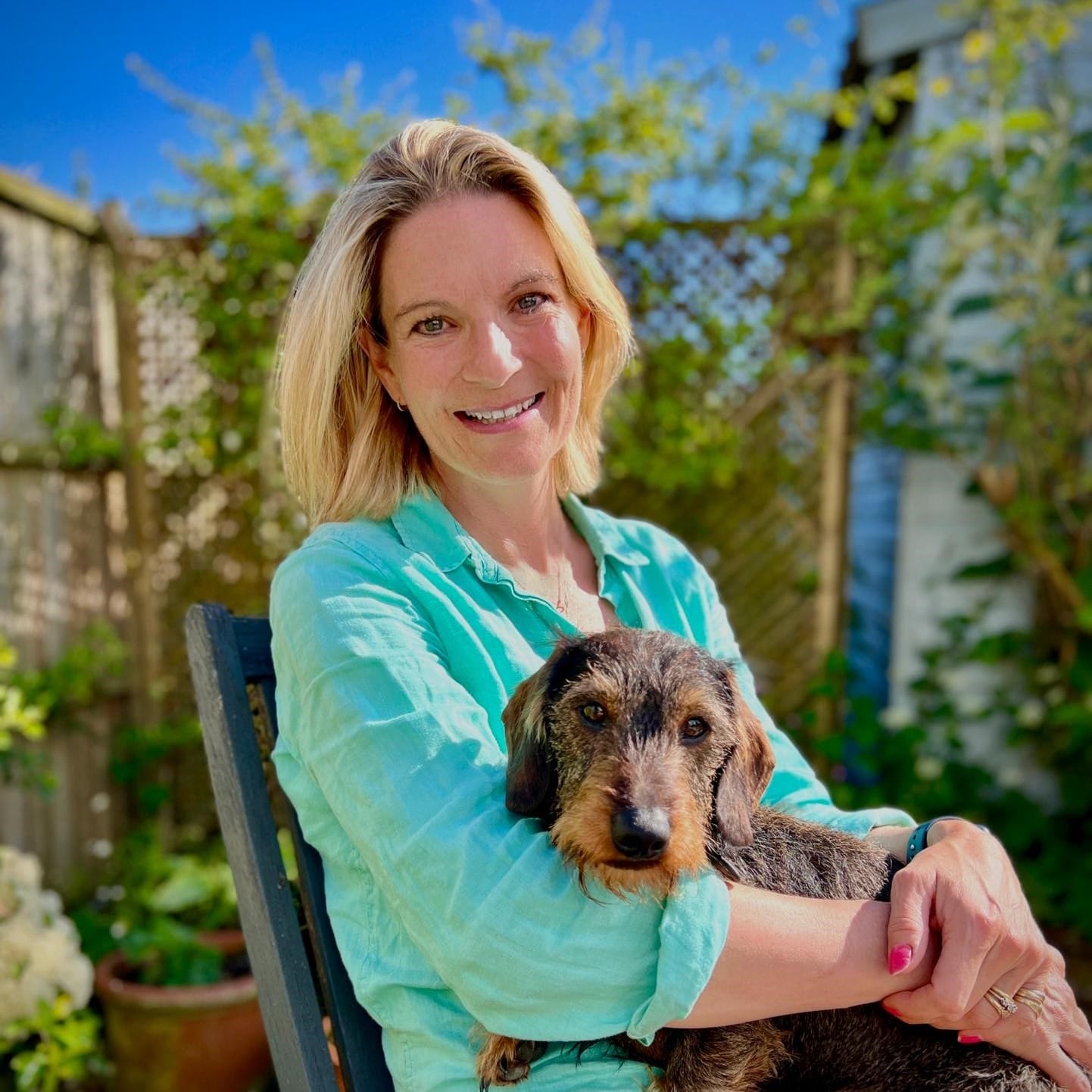
Pippa
Grant recipient Pippa (Parkinson, 1991) – was awarded a grant to train as a children and teen therapist through Ollie and his Superpowers.
Read MorePippa

Until March 2020 I was running a successful Bed and Breakfast near Stonehenge. However, this changed overnight when the pandemic hit and I was left with no guests, no income and everyone at home trying to work. I signed up for the Covid 19 vaccination programme because I wanted to do my bit and help the fight the disease. While doing this role, I realized how much people needed to talk and offload. I found that I enjoyed providing a listening ear and a calm presence. I realised then that I really didn’t want to go back to the hospitality industry, and that my heart was really in helping people.
It was while reading Psychologies magazine, that I saw an article about Ollie and his Superpowers: how they were looking for people to join ‘Ollie’s army’ to help empower children (and adults) to manage their emotions. I quickly signed up and in July 2020 I found myself in a Zoom classroom with ten other Ollie students. It was pretty terrifying having been out of education for so long, however, I soon realized that everyone on the course had the same thoughts and ideas as I did and we quickly bonded. The course started off with the first few weekends on Zoom where we learnt all about the underpinning theory to the model, and then were taught the techniques that we will be able to use in therapy. We then moved into the classroom in London where we practiced everything we had been learning over the weeks. I have absolutely loved the course and have learnt so much not only about myself but also ways in which I can help my family and friends.
The Ollie concept was devised by award winning author and therapist, Alison Knowles and uses a number of different methodologies to empower children to seek solutions and take control of their emotions, rather than being controlled by them. The Ollie methodology combines CBT (Cognitive Behavioural Therapy), NLP (Neuro Linguistic Programming), Play Therapy, Positive Psychology and Parts Therapy, and believes that no two therapy sessions are the same because everyone is unique and individual. The course also believes that therapy should be holistic and tailored to the individual needs of the client.
At the beginning it was incredibly confusing with so much to learn, lots to practice and a huge amount of coursework to work my way through. I decided to take it slowly and not put too much pressure on myself, especially as I was still having to look after three children, two dogs, sixteen chickens and a husband!
On top of all the essays, tests, reflective journals, units and practice hours, we also had to write up a number of very detailed case studies using real people with real presenting issues. A somewhat daunting task, however once I started my first one, I realized how much I enjoyed it and how it was starting to come naturally to me. In one of my case studies, I helped a 9 year old girl with a crippling phobia of dogs that prevented her going anywhere. I used a range of techniques to help her and I can now say that she is cured and wants to become a dog trainer!.
As an Ollie coach, I am able to help both adults and children with anything such as anger issues, behaviour issues, grief, stress, anxiety and phobias. Now that I am qualified I am hoping to set up in private practice from home and combine my love of nature and gardening with therapy. I have also signed up for the next course on the Ollie programme which will enable me to deliver parent’s evenings and assemblies within schools and also to work with small groups of children who might need some extra support. I am currently building my website and business with a view to launching myself in September once term starts.
I cannot thank DHSA enough for the very generous grant that has enabled me to retrain and take my career in a different and more fulfilling direction. I am passionate about helping children and teenagers with their mental health and I am hoping I will be able to help many people over the years. There is a huge need for qualified therapists especially since the pandemic and waiting lists for CAMHS (Children and Adolescent Mental Health Service) are at an all time high. Thank you Downe House.
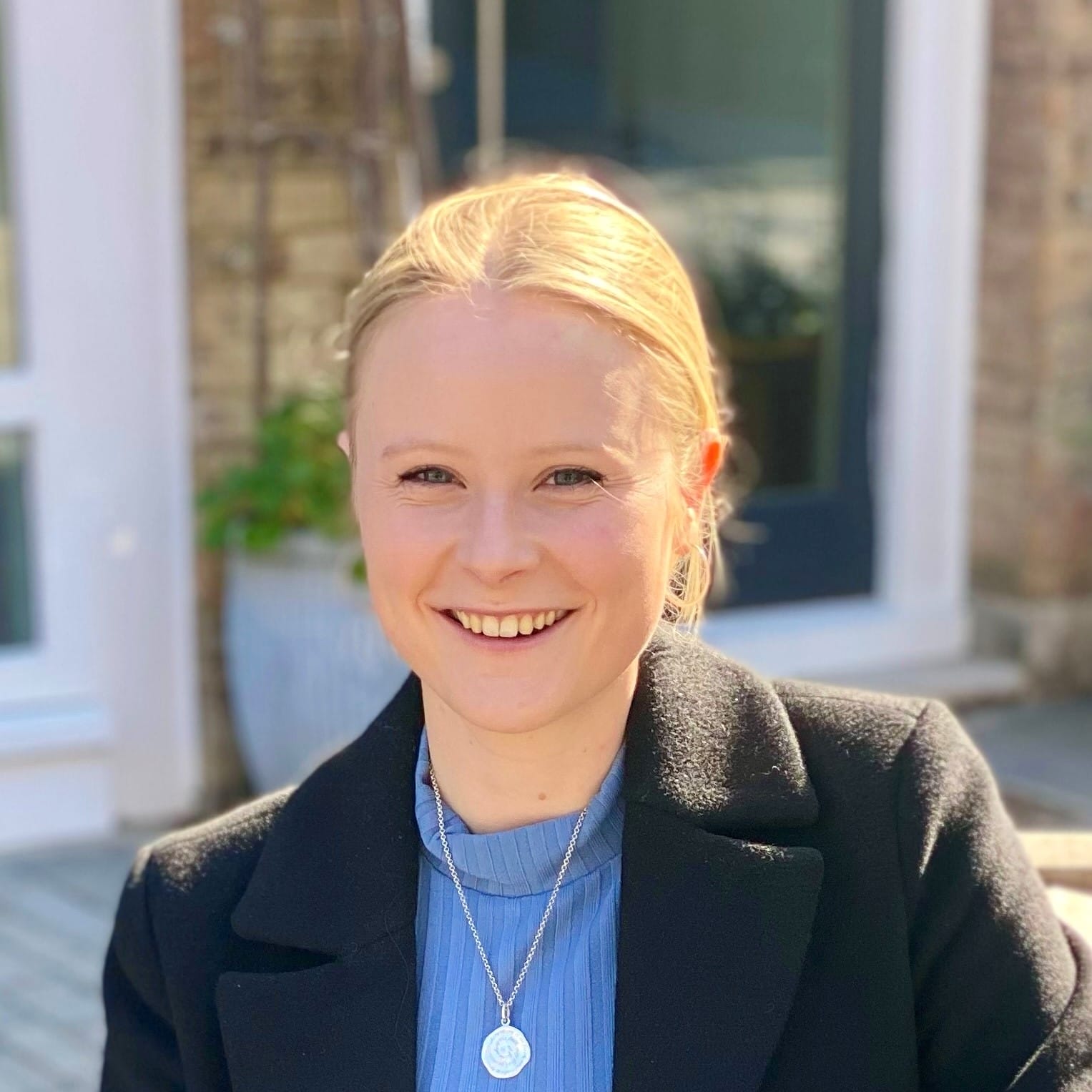
Emily
Grant recipient Emily (2013) made a decision to become a bookkeeper whilst working as a Gallery Assistant and has recently qualified in Bookkeeping and Accounts through the Institute of Certified Bookkeepers.
Read MoreEmily

Thanks to the DHSA Grant, I have recently completed a qualification in Bookkeeping and Accounts, through the Institute of Certified Bookkeepers, achieving Distinction with Honours. This has given me the ability to complete all the bookkeeping requirements of a business – including the day-to-day tasks, as well as VAT Returns and Self-Assessment Tax Returns, for a variety of company structures.
The decision to begin a course to become a bookkeeper came about while I was working as a Gallery Assistant in a small London gallery, where, having been deemed vaguely ‘numerate’ I was asked to take on the bookkeeping of the business. My interest was piqued and I later began to look into official qualifications. I have also always dreamt of working for myself, so I chose the ICB qualification, which seemed the perfect one as it is specifically designed for those who wish to become self-employed.
I am now a bookkeeper for small businesses in a variety of sectors, although I feel I am certainly aiming to have a few galleries as clients – my love for art still remains! This qualification has provided me with the best possible way to work for myself in a profession that I enjoy and the ability to do it at all is thanks to the DHSA Grant, for which I will be eternally grateful.

